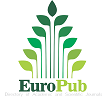At the end of the road
Abstract
Talking about the proximity of death is questioning, for many a taboo or topic to avoid. However, it is not far from our present reality and invites us to reflect on it. A great American author, who died at the age of eighty-seven, left us with a memorable phrase: "Death is the last journey, the longest and the best." (Tom Wolfe), in the accurate reflection of who starts not to return. Many are the factors that have influenced to assume this reality, from the recurrence of the news, the natural fear of death, the fragility in the face of illness, the seeing of those close to oneself, old age and childhood; own personal and family experience, fear, fear, loneliness and sadness together with a host of emotions that are necessary to assume and control. The handling of mourning and mourning is not far from this reality, as well as the consequent coping with the death of those who are close and even close to their own departure. Bioethics also invites us to reflect on palliative care, respect for human dignity and value, also proposing support aids for human well-being.
Downloads
References
Antón, S. (26 de octubre de 2018). El duelo: aprender a vivir con sentido tras una pérdida importante. https://allumelx.com/duelo-vivir-con-sentido-tras-una-perdida/
Bandrés-Sánchez María del Pilar (2002). Perú hoy. Bioética y medicina, su enseñanza: Apuntes de una realidad. Rev. Per. Soc. Med. Intern. Vol. 15, Nº 3. UNMSM. http://sisbib.unmsm.edu.pe/bvrevistas/spmi/v15n3/bioetica_peru.htm
Bayés Ramón (2007), Afrontando la vida, esperando la muerte, Les cahiers psychologie politique [En ligne], numéro 10, Janvier 2007. http://lodel.irevues.inist.fr/cahierspsychologiepolitique/index.php?id=966
Bowlby J. (1999). Vínculos afectivos. Formación, desarrollo y pérdida. 3ª ed: Morata.
Castel, F. 70 frases sobre la muerte y el más allá. Psicología y Mente. https://psicologiaymente.com/reflexiones/frases-sobre-la-muerte
Foro Gogoa de Pamplona (2018). Entrevista con Dr. Enric Benito Oliver, médico especialista en Oncología y cuidados paliativos. https://solitariosinvisibles.org/miedo-a-la-muerte/
Generalitat Valenciana (2011). Cultivando emociones. Conselleria d’Educació, Formació i Ocupació
Naciones Unidas (1948). Declaración Universal de Derechos Humanos.
https://www.undp.org/content/undp/es/home/sdgoverview/mdg_goals.html
Neimeyer R. (2002). Aprender de la pérdida: Piados.
O´Connor, Nancy (2011). Déjalos ir con amor: la aceptación del duelo. Editorial Trillas.
Oviedo Soto, S.J., Parra Falcón, F.M., & Marquina Volcanes, M. (2009). La muerte y el duelo. Enfermería Global, (15). http://scielo.isciii.es/scielo.php?script=sci_arttext&pid=S169561412009000100015&lng=es&tlng=es.
Papa Francisco (2020) https://www.vaticannews.va/es/papa/news/2020-02/dia-del-enfermo-el-papa-confia-a-la-virgen-a-quienes-sufren.html
Payás, Alba (2014). El mensaje de las lágrimas: Una guía para superar la pérdida de un ser querido. Paidós.
Sgreccia, Elio (2014). Manual de Bioética I: Fundamentos y ética biomédica. Biblioteca de Autores Cristianos.
Sgreccia Elio (2014). Manual de Bioética II. Aspectos Médico-Sociales. Biblioteca de Autores Cristianos.
Tardón, L., Lucio, C. (14 de marzo de 2018). La enfermedad de Stephen Hawking: el milagro de vivir 55 años con ELA. El Mundo. https://www.elmundo.es/ciencia-y-salud/salud/2018/03/14/5aa9352f46163f3a298b459f.html
The authors retain copyright.
This work is under international license Creative Commons Attribution 4.0.
The articles published by the scientific journal "Notes on Bioethics" of the Universidad Catolica Santo Toribio de Mogrovejo, Chiclayo Peru, can be shared through the international public license Creative Commons Attribution CC BY 4.0
























 LIBRARY USAT
LIBRARY USAT